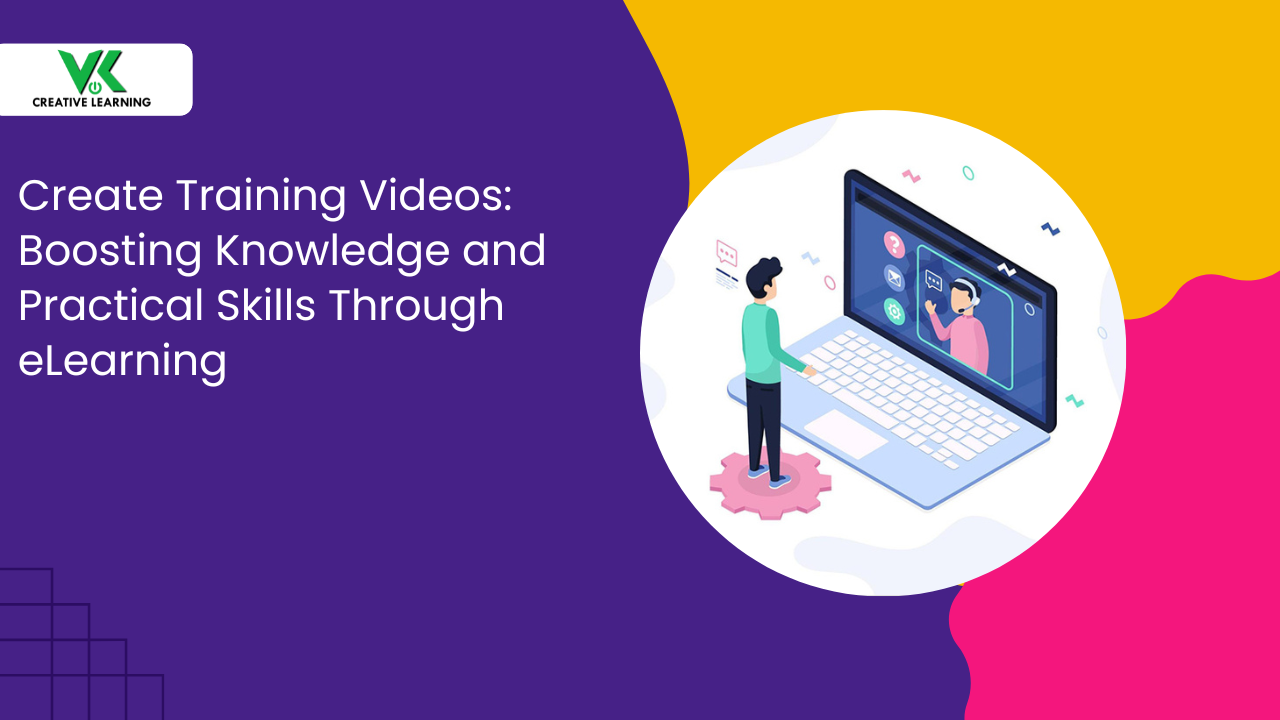Cultivating Critical Thinking Skills Through Inquiry-Based Learning in eLearning
July 06, 2024
At certain times, traditional methodologies and online courseware may fall short to create the required learning environment for developing critical thinking skills among the learners.
Also, there is a chance that these forms of mediums would rely on passive learning methods, wherein instructors will simply present information (teach on board without elaborate explanation and adequate examples) and students are expected to absorb the concept quietly.
For example, imagine a situation wherein students are taking quick notes in a notebook without comprehending anything or a workforce is making quick PowerPoint slides missing all important points. This form of approach where many instructions and concepts are delivered fast can lead to information overload. The consequence would be that the learners may not understand the subject matter as it may become difficult for them to take notes and absorb the information at the same time.
Furthermore, when such forms of passive methods are implemented, they often fail to offer opportunities for learners to work on their critical thinking skills based on inquiry-based learning. To elaborate, they may not question any information that has been taught and simply go by assumptions without evaluation.
To better understand the concept of critical thinking, one can imagine critical thinking more like muscle building. The more one exercises all muscle regions again and again focused on strengthening them, the stronger they become with time. On the contrary, passive learning environments do not support this form of inquiry-based learning that is essential to develop critical thinking muscles. In other words, inquiry-based learning forms the base when it comes to developing critical learning skills.
Inquiry-Based Learning in eLearning -- An Overview
When inquiry-based learning (IBL) is incorporated into eLearning, it flips the script on traditional learning by placing the importance on learning by pushing the learners to understand something by questioning every idea and data related to it.
Differently put, instead of passively gaining information provided in textbooks, learners are advocated to ask questions -- explore topics closely -- to absorb concepts or while solving problems.
For example, you can think of an eLearning course based on climate change that utilizes the concept of IBL. That is, instead of putting facts and figures before the learners without explaining their significance, the course might prompt them to pose a question such as: 'What can be the potential consequences of rising sea levels, and how they can be brought into control?
Based on this question, learners would then have to carry out research work on the topic, thoroughly investigate and analyze every piece of data, and then, come up with their own opinions.
This kind of inquiry-based learning approach helps to create curiosity and activates the critical thinking capabilities of the learners. More importantly, they start engaging with the learning materials in an appreciable way as learning takes place in a way through which they will retain the information for a long period of time.
Key Components of Inquiry-Based Learning for Developing Critical Thinking Skills
Inquiry-based learning is capable of changing the eLearning landscape completely from a tiring and burdened one to an enjoyable odyssey of discovery -- an immersive one, and here is how it works:
Open-Ended Questions: When IBL is introduced in an eLearning courseware -- let us assume marketing -- and the training kicks off, it won't be a dry rundown, but it will push learners to come up with unique questions like: What are the various big challenges that social media marketing faces in current times?
Hence, inquiry-based learning is not all about asking any random question but enkindling curiosity and exploration.
Hence, it can be seen as an intellectual spark that enkindles the needed curiosity and nudges learners to explore problems from every perspective.
Research and Investigation Activities: Once essential queries are developed, eLearning offers a host of resources – articles, case studies, you name it -- to aid the learners to find the solution.
This is more like providing learners with a detective’s magnifying glass so that they can look at different viewpoints and come up with their own narrative.
For example, a customer care executive may come across all sorts of real-world conundrums and will be asked to find answers for the problems through this type of exploration exercise in the eLearning courseware. By doing so, learners gradually sharpen their wits and get a hang of untangling customer knots with a great deal of expertise -- now critical thinking comes into play hereafter.
Analysis and Synthesis of Information: Once the required information is gathered, the next task for the IBL champions is to dissect and study the problem closely -- with a high level of precision similar to a surgeon.
In such cases, eLearning modules loaded with analytical toolkits help to sift through the information -- here critical thinking capabilities are put into use. Then, the trainer has to sniff out biases -- discarding unwanted data and retaining the needed ones, and then, landing to reliable and practical conclusions based on the available information.
To understand this, let us suppose that a finance workshop is held wherein inquiry-based learning serves as the methodology to wade through the maze of financial statements. In such cases, analytical acumen has to be utilized by the trainees to gauge a firm’s fiscal pulse. In other words, the combination of IBL along with critical thinking abilities through an eLearning platform can help learners to come out with innovative solutions.
Collaboration and Discussion: Inquiry-based learning lifeblood is dialogue, and eLearning platforms turn into a medium just for that with features embedded such as forums, chatrooms, and virtual roundtables. Through these, learners come up with new discoveries, joust over concepts, and harvest wisdom from collective insights.
For example, an eLearning platform will allow all potential candidates to discuss with their instructor and go through resources to understand the skills that need to be acquired for getting into a leadership role. Besides, in these digital colloquies, individuals who are already in leadership positions get to polish their management as well as decision-making prowess so that they would to stand firm while facing any type of dilemma related to the role.
Addressing Various Challenges with Inquiry-based Learning Through eLearning Platform
Utilizing inquiry-based learning in eLearning courseware, it becomes possible to address various types of knowledge-absorbing problems -- as explained hereunder.
Passive to Active Learning: While inquiry-based learning provides learners with numerous kinds benefits, it is not so easy to implement it when it comes to an online setting. Elaborately put, one of the first concerns during studying or training sessions is ensuring active learning happens, or the consumption of information is not passive.
Thus, in such a case, the solution is opting for an eLearning platform which comes with a plethora of features like IBL to stimulate critical thinking skills.
For example, interactive simulations will be incorporated within an eLearning course so that managers can learn to make essential decisions in the virtual arena. This handy, practical hands-on methodology – a true cornerstone of the eLearning platform – not only keeps learners actively engaged in their knowledge-seeking path but also evokes a thirst for knowledge -- adding fuel to the fire of curiosity.
Encouraging Thought-Provoking Questions: Through the virtual platform, instructors can motivate learners to think differently in terms of coming up with questions while solving a particular problem. This exercise of coming up with thought-provoking questions is made possible through well-designed activities in the courseware. All in all, this measure helps the learners to enhance their critical thinking abilities and address real-world scenarios calmly and smartly.
Discussion Forums to Share Ideas and Stimulate Analytical Skills: Interaction and collaboration among the learners can help to encourage inquiry-based learning. This can be achieved through eLearning platforms that offer a host of mediums to share ideas/viewpoints, discuss or debate on a topic, hold, peer review activities, and ask questions. This would stimulate critical thinking skills among the participants and improve team collaboration.
Conclusion
When inquiry-based learning methodology is included in the eLearning platforms, it can be beneficial in many ways especially when it comes to polishing critical thinking skills and exploring a problem from all angles.
If you want to include an inquiry-based learning mechanism in your eLearning courseware so that learners can gain an in-depth understanding of the topics, then you can approach VK Creative Learning.




